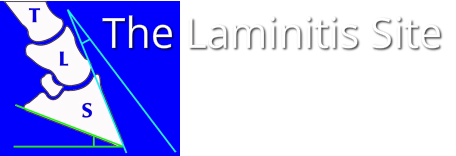Rendle DI, Hughes KJ, Doran G, Edwards S
Pharmacokinetics of Pergolide Mesylate in Horses
Equine Veterinary Journal Volume 45, Issue Supplement S44, page 19, September 2013
8 healthy horses were given 0.02 mg/kg bodyweight pergolide intravenously - this is the equivalent of 10 mg for a 500 kg horse - ten times the recommended starting dose of 0.002 mg/kg bw, or 1 mg/500 kg horse. The abstract doesn't say whether it was a one off dose - presumably it was. Blood was analysed for pergolide concentrations for 48 hours following administration.
The mean half life was 5.8 +/- 2.26 hours - shorter than previously reported, but in line with the mean half life of 5.86 +/- 3.42 hours found by Abra Wright when healthy mares were given 0.01 mg/kg pergolide by mouth after fasting (5 mg/500 kg horse). In Wright's research there was a large variation of half life between horses - from 3.10 to 12.39 hours. There was also a difference in maximum concentration between horses, ranging from 2.11 to 6.20 ng/ml. However in all the horses the pergolide was absorbed quickly, with time to maximum concentration ranging from 0.33 to 1 hour. These results suggest that, as in humans, the metabolism/elimination profile of pergolide varies considerably between treated horses.
Wright, Abra M
Pharmacokinetics of Pergolide in normal mares
MSc Thesis 2009 Kansas State University
Rendle concluded that pergolide does not require a loading dose. However giving pergolide twice daily may be more appropriate than once daily.
If this is the case, and the dose currently given once daily would be more effective if split into two doses, surely Prascend tablets need to be capable of being divided into quarters rather than just halves? Or is the suggestion that the daily amount of pergolide split into two doses would be larger than the dose currently given once daily? Good news for Boehringer Ingelheim (by whom David Rendle acts as a paid speaker and consultant) if this research supports giving a larger overall dose!
Both researchers used much larger doses of pergolide than are normally used, the research was carried out on healthy horses, not horses with PPID, only a single dose of pergolide was given in each case, and in both cases the pergolide was not administered in the same way as owners give pergolide - in Rendle's research the dose of pergolide was given intravenously, in Wright's research although the pergolide was given by mouth, it followed an 8 hour fast. So just how relevant is this research in terms of recommending oral dosing of pergolide for horses with PPID?

 RSS Feed
RSS Feed